This blog is part of a series. Read the rest of the series here:
- Unmasking the Shadows: Identity Disclosure as a Tactic to Deter Sex Buyers
- How Sex Buyers are Identified and Their Involvement in Wide-ranging Criminal Conduct
We all know the story.
A woman is sex trafficked. She endures years of unimaginable horror under the thumb of her trafficker. Thankfully, she is eventually identified by law enforcement and assisted in gaining freedom. Her sex trafficker is convicted and put in jail.
It’s a success story! Right? The survivor is free. The perpetrator is behind bars … But something is missing. Something crucial.
All the men who raped this woman over the past several years are still at large.
And so long as they’re at large … so long as they have cash in their pockets that they’re willing to hand over to someone who will sell them a girl, boy, or adult … sex trafficking will never end.
Here’s the thing: A key factor in preventing sex trafficking is often neglected or forgotten altogether—the consumer demand for paid sex. In other words: the sex buyer.
It is so simple! If there were no sex buyers, there would be no sex trafficking. No Buyers=No Business.
New Research and Symposium Highlight Importance of Combatting Sex Buying
In January 2024, the US Department of Justice’s National Institute of Justice (NIJ) released the final report of a NIJ-funded study conducted by NCOSE’s Research Institute, National Assessment of Demand Reduction Efforts, Part II: New Developments in the Primary Prevention of Sex Trafficking. The study provides an updated analysis of tactics implemented throughout the United States to combat sex buying (i.e. “demand reduction tactics”). In particular, it discussed the advent of new tactics that use information technology (IT) to deter sex buyers and develop evidence to apprehend those actively seeking to purchase sexual access to exploited individuals.

Following the release of the study, NCOSE hosted a symposium on February 29th 2024, entitled Primary Prevention of Sex Trafficking: Moving the Needle on Demand Reduction. This symposium brought together policy makers, law enforcement, government officials, and concerned citizens alike to hear from key experts on the issue of combatting the demand for paid sex.
Speakers included Sheriff Tom Dart, Cook County Sheriff; Michael Shively, Ph.D., Researcher & Demand Reduction Expert; Dawn Hawkins, NCOSE CEO; Hon. Tanya Gould, Director Anti-Human Trafficking Office, Attorney General VA; Marian Hatcher, Rev. Dr. C.D.K.A., Retired-Policy Analyst Cook County Sheriff’s Office; Bob Rodgers, President & CEO at Street Grace Marcel van der Watt, Ph.D.; Marcel van der Watt, Ph.D., NCOSE Director of Research Institute; Lisa Thompson, NCOSE Vice President of Research; and Teresa J. Helm, NCOSE Survivor Services Coordinator.
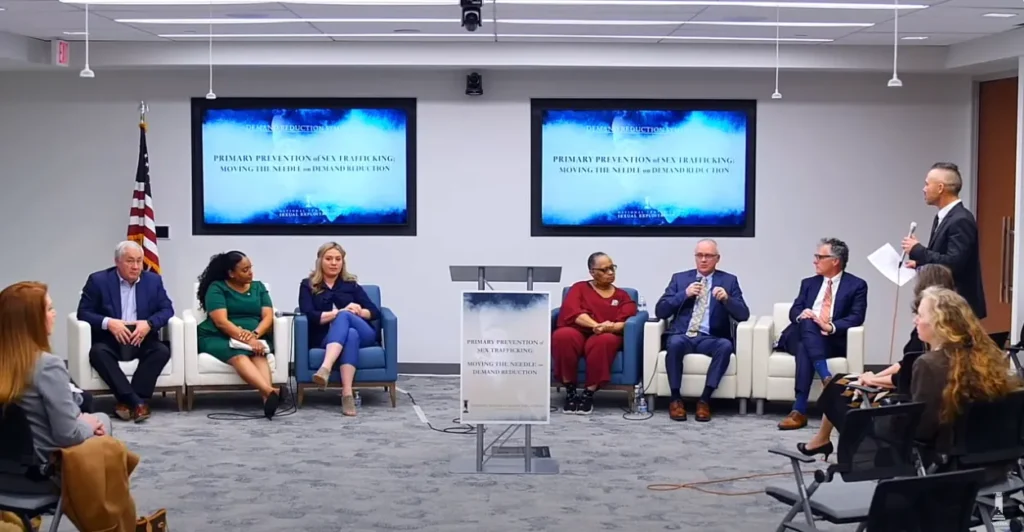
At the symposium, Dr. Michael Shively, the nation’s foremost researcher on demand and lead author of the NIJ-funded study, aptly explained why demand reduction is crucial for truly ending the problem of sex trafficking:
“No commercial enterprise, criminal or otherwise, can exist without demand for whatever it is that is being transacted. Consumer demand is the cause and the existence of traffickers and the exploitation of victims are its symptoms. There’s no evidence that sex trafficking can be substantially reduced by supply-side interventions. It’s very important to support survivors and identify them, it’s very important to go after the pimps and traffickers. But they are reactive [tactics] and they are symptom management. They do not stop this. There’s no evidence that they actually bring this to a halt or even reduce it. The only evidence-based interventions are demand-reduction.”
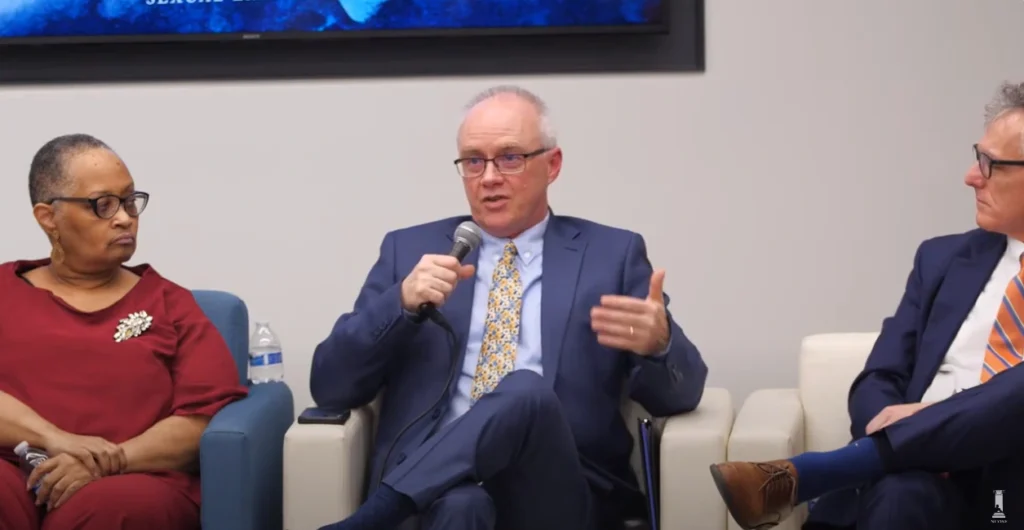
Co-author Lisa Thompson added that while there is growing recognition among the sex-trafficking movement of the need to address demand, “[t]oo many people still don’t recognize demand’s role and there are sadly others who openly stand in the way of demand reduction approaches.”
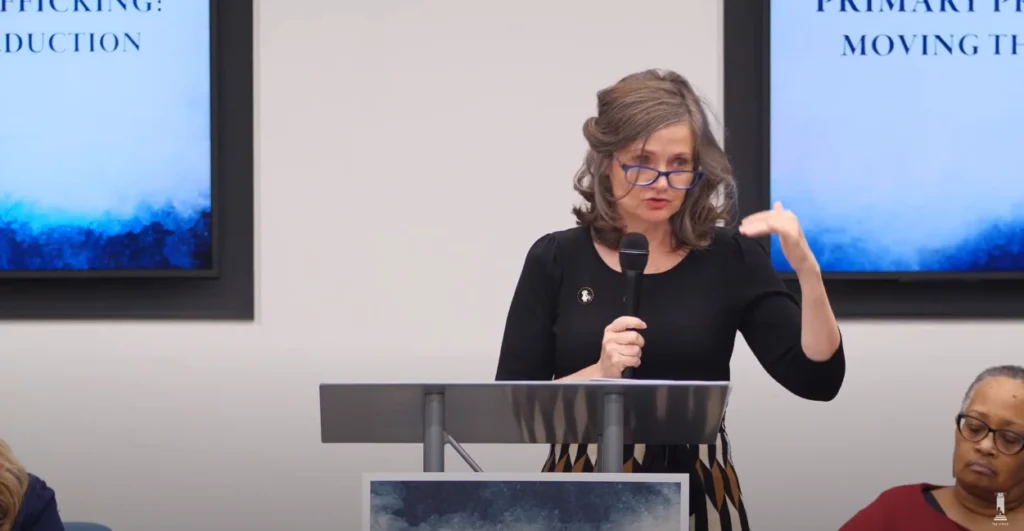
Those who attempt to undermine demand reduction tactics typically do so under the banner of full-decriminalization or legalization of prostitution, which they deceptively paint as a “harm reduction” approach. Yet as co-author Dr. Marcel van der Watt stated: “Full decriminalization and sex buyer impunity is not a pathway for harm reduction; instead, it is the operations room for harm production.”
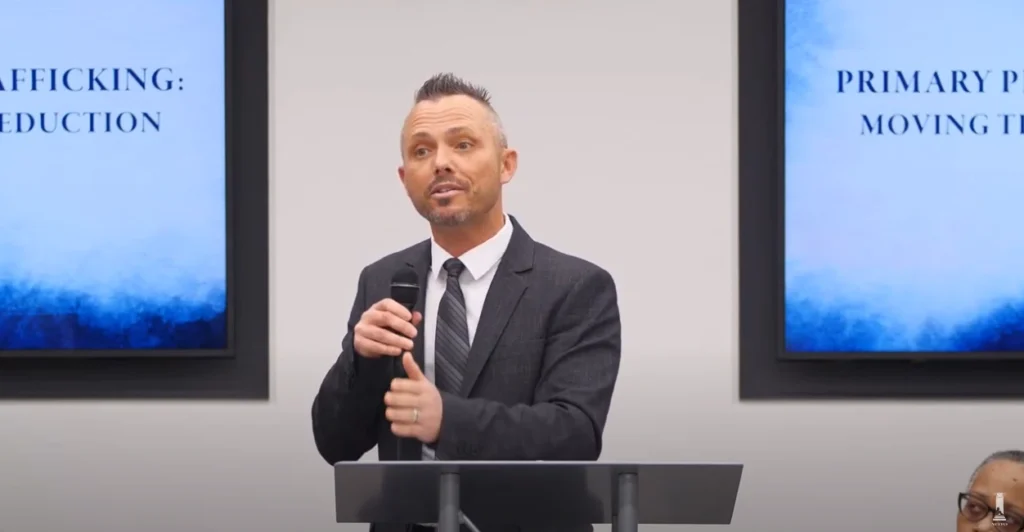
Underscoring this point, Dr. Marian Hatcher shared how Nevada, the only U.S. state where sex buying, pimping, and brothel-keeping is legalized, serves as a microcosm to illustrate the failed promises of full decriminalization and/or legalization. She states: “Nevada has been a failed science experiment for more than 50 years … The bottom line is they have increased organized crime, they have increased child exploitation, they have increased co-occurring crimes.”
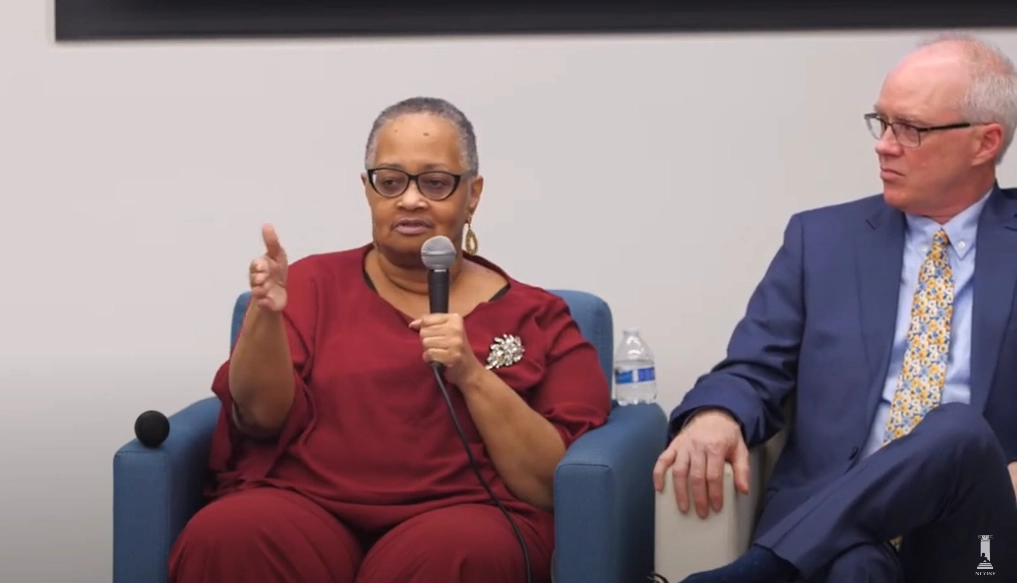
The NCOSE Law Center is currently representing a sex trafficking survivor in a lawsuit against Nevada and its brothels. You can learn more about the lawsuit and the rampant problem of sex trafficking within legal Nevada brothels here. Additionally, see NCOSE’s flyer 10 Reasons to Oppose Full Decriminalization of Pimping, Sex Buying, and Brothel Keeping for research-based reasons why full decriminalization and legalization do not reduce harm.
Alongside the supposed “harm reduction” advocates, there are those who excuse sex buying by claiming it is inevitable, often citing the tiresome phrase, “Boys will be boys.” Hon. Tanya Gould rightly called out this mentality, saying: “I had boys and I raised them to become men, protectors, providers, right? That’s what I raised my boys to be… Boys will not be boys, and I’m so glad I’m not a boy or a man because that’s degrading…”
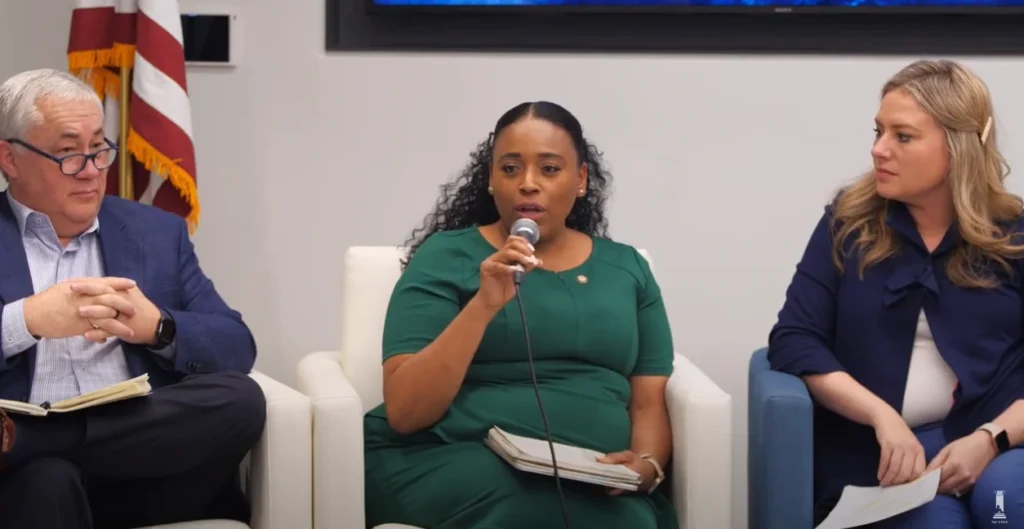
To prove that buying sex is not inevitable, we need only point to the fact that the vast majority of men do not buy sex. According to a 2018 study from Demand Abolition which surveyed 8,201 adult males across the US, only 6.2% of men have bought sex within the past 12 months and 20.6% do so at least once in their lifetimes.
Further, as NCOSE’s new NIJ-funded study shows, even the men who do buy sex or seek to buy sex can be effectively deterred by tried and true demand reduction tactics.
So the bottom line is: we can move the needle on demand reduction. And in doing so, we can prevent sex trafficking. Will you join us?
ACTION: Urge your State Legislators to Combat Demand!
Please take 30 seconds to contact your state legislators, urging them to adopt policies that combat sex buying!
Further Resources on Demand Reduction
1. Download the NCOSE-authored, National Institute of Justice-funded study, National Assessment of Demand Reduction Efforts, Part II: New Developments in the Primary Prevention of Sex Trafficking, for a comprehensive review of demand-reduction tactics implemented across the U.S.
2. Watch the recording of the symposium below:
3. Learn more about demand reduction through the following resources:
- Primary Prevention of Sex Trafficking: Time to Move the Needle on Demand Reduction*
- Why Sex Buyers Must be Stopped and How to Do it
- Discouraging the Demand That Fosters Sex Trafficking – Collaboration through Augmented Intelligence
*This article appears in the forthcoming Special Issue of the Journal of Human Trafficking, edited by John Winterdyk and Sheldon Zhang. The issue includes an international collection of articles that looks at a range of gaps in efforts to combat human trafficking.

